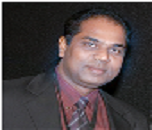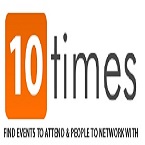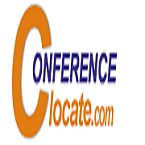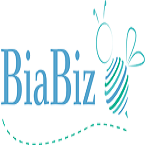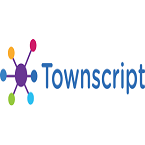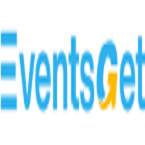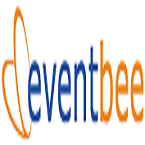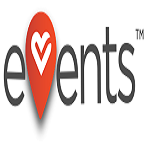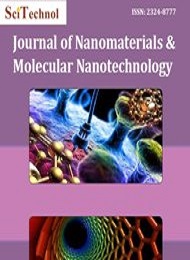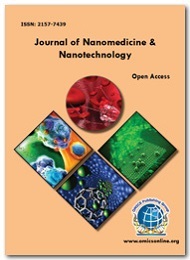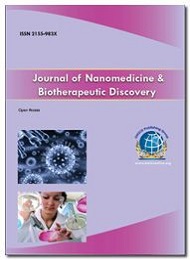Theme: Emerging Nanoscience applications and inventions
Euro Nanomat- 2023
- About EURO NANOMAT- 2023
- Scientific Sessions
- Market Analysis
- Important announcements
- Past Conference Report
The "Global Summit on Nanoscience and Technology" will take place in Vancouver, Canada, on January 18–19, 2023, and is open to all attendees from across the world. On behalf of the organizing committee, we take great pleasure in extending this invitation to the field's scientists, professors, students, and experts to this Conference. Euro Nanomat- 2023 offers a great opportunity to collaborate with international business delegates and researchers and it is all set to be adorned by world renowned speakers, researchers, professors, scientists and pioneers of this field. Euro Nanomat- 2023 with the theme “Emerging Nano science applications and inventions” will cover the wide range of topics which will give a chance to learn about every aspect of Nanoscience research. Conferenceseries will host Euro Nanomat- 2023, which will bring together a number of famous tutorial and scientific organisations that are known for fostering a scientific mindset.
Oral and poster abstracts are now invited and should be submitted using the online abstract submission system. All submitted abstracts will be published in the special issue section as conference proceedings in the Nanoscience and Technology journals.
Table of Content:
Who should attend?
Why attend this Euro Nanomat 2023?
Conference Brochure
Download Conference Agenda
Covid-19 Guidelines
Abstract Submission Criteria
Conference Venue Details
About Canada VISA
Who should attend?
Experts in
Nanotechnology,
Computational nanotechnology,
Chemical nanotechnology,
Nanomaterials,
Biomedical nanotechnology,
Biomarkers,
Nanobiology,
Cancer nanotechnology,
DNA nanotechnology,
Silicon devices and nanotechnology,
Nanoscale materials and nanotechnology,
Carbon-based nanotechnology,
Nanobiotechnology,
Nanolithography,
Nanomedicine,
Nanoscience,
Environmental Nanotechnology,
Hybrid nanomaterials,
Nanotechnology and information storage,
Organic Chemistry for Nanotechnology
Individuals involved in Agriculture, Investors, Startup, Government Organization, Researchers and Lecturers and Students to enhance the knowledge about Nanoscience and Nanotechnology and connect to the experts to find the answer about the crucial problems of this world.
Target audience:
· Academic Professionals
· Nano Scientists
· Students carrying out laboratory and field studies
· Nanotechnology Associations and Societies
· Pharmaceutical Companies and Markets
· Noble laureates in Health Care and Medicine
· Nanotechnologists
· Pharmacists
· DNA Professionals
· Nanotechnology Professionals
· Bio instruments Professionals
· Bio-informatics Professionals
· Toxicologists
Why attend this Euro Nanomat- 2023?
1. Young Scientist Award recognition certificate and memento to the winners.
2. Our conferences provide best Platform for your research through oral presentations.
3. Learn about career improvement with all the latest technologies by networking.
4. Young Scientists will get appropriate and timely information by this Forum.
5. Platform for collaboration among young researchers for better development.
6. Provide opportunity for research interaction and established senior investigators across the globe in the area.
7. Share the ideas with both eminent researchers and mentors.
8. It's a great privilege for young researchers to learn about the research areas for expanding their research knowledge.
Conference Brochure:
To download the conference Brochure, please fill the required details in the Form and click on Download Brochure.
Covid-19 Guidelines:
Euro Nanomat- 2023 organizing team assure you that we will take all the necessary precautions underlined by the Centers for Disease Control and Prevention (CDC) along with local state authorities. Our Conference team is working 24/7 to ensure your safety which is why we are operating round the clock and regularly examining the situation. Currently, our conference team is approaching details with care. We consider that transparent communication with our speakers, delegates, and team members is important. Along with our venue partners, we will be implementing Health & Safety protocols to lower the risk of transmissions during the event. This Upcoming Euro Nanomat- 2023 has also developed a multi-model approach, which includes sanitization of high-touch areas, encouraging social distancing, temperature check and mask-wearing in the venue, taking into account every aspects of the delegate experience. We have also united our efforts with health and safety experts in order that you'll enjoy the conference offerings with utmost ease and confidence.
· The Abstract should be written in English.
· Please indicate one - three most relevant themes for your abstract from the conference tracks.
· Please send a brief biography together with the Abstract (An example is given in the abstract template).
· Please download the abstract template and follow the format carefully.
· Documents that do not conform to the guidelines will be asked to revise.
· Documents received after the given deadline, due to any reason will not be accepted unless the deadline is extended.
· The abstract should be submitted in the format of MS Word (.doc or .docx) document.
Vancouver is located on the mainland of North America, in the south west corner of British Columbia, which is the westernmost of Canada's ten provinces. Greater Vancouver is made up of 21 municipalities that occupy 2,930 square kilometres on and around the Fraser River delta. The City of Vancouver is one of them. Click here to know more...
For conference attendance and participation only Business Visa should be applied. Contact your nearest travel agent/visa information centre/Canada Embassy for the correct application form. All visas for visiting Canada shall be processed by respective authorities only upon submission of proper documents through proper channel. In case of non-furnishing of documents, non-adherence to guidelines visas shall be cancelled by respective authorities. The minimum supportive documents that might be required while applying for Canada visa include:
For letter of invitation and accommodation confirmation, payment of registration fees and accommodation charges is a pre-requisite. Mandate documents required from conference secretariat should be obtained only through Nanoscience Conference Organizing team.
Track 1: Multimodal Nanoscience: Multi-modal nanoscience tools creates the possiblility to go the places that no one thought to possible half decade ago. There were research going on for new innovative materials and techniques which can add to the current reliance on electronic semiconductors. Hence, control over the properties of the material can create improved speed, flexibility, and energy efficiency for forthcoming computing platforms. In order to fulfil the rising global need for energy, large-scale sustainable and efficient energy production will be necessary. Nanotechnology has the potential to capture, convert, and store energy with better efficiency.
Track 2: Nanoscience: The recent research which was awarded Kavli Prize in Nanoscience was on inventions of aberration-corrected lenses used in electron microscopes which enabled the researchers worldwide to see the chemical composition and structure of materials in three dimensions. The goal of nanoscience is to generate materials and devices assembled with precision on atomic scale to get novel functionalities. Hence, need to overcome several challenges in its research.
Track 3: Nanoscience can improve life: Targeting infectious diseases is possible with nanoparticle design. Anti-inflammatory medications could fight bacterial and viral infection, while nanomaterials may target the lungs to deliver powerful antibiotics. Nanoparticles may help treat neurological diseases like Parkinson's and Alzheimer's more successfully as well as arthritis. Advances in the newly-emerging discipline of immuno-oncology are likely to trigger the immune system to attack tumour cells.
Track 4: Nanosensor: With the expansion of "nano-enabled smart gadgets" in industries including telecommunications, consumer goods, and information technology, technology is anticipated to become more widely used. Advances in nanoscience could improve food safety and reduce food contamination. It may be possible to develop sensor technologies that take use of alterations in nanostructures' surfaces to find disease-causing pathogens before they spread. Additionally, advancements in agrochemicals may result from nanoscale sensor technology.
Track 5: Innovative Nanomaterials to Decontaminate Water: Desalination and purification of water are processes that utilise nanotechnology principles, and nanotechnology is anticipated to have a significant impact on the world's ability to supply clean water. New innovations can help decontaminate the water and thereby reducing the water shortage in major cities of the world. It will bring new revolution in the recycling of waste water.
Track 6: Graphene: Magic-angle twisted grapheme, was first discovered in 2018, made of three sheets of it, with each sheet twisted at an angle f 1.05 degrees. The resulting structure has unusual properties, which can be turned into an insulator or semiconductor based on number of electrons aged. It can be used in quantum information and quantum science. More research needs to be done to study superconducting gap profiles of this material.
Track 7: Robotics at the Nanoscale: The world's smallest flow-driven motors have been built by scientists. They developed a self-configuring DNA flow-driven rotor that transforms energy from an electrical or salt gradient into effective mechanical work, drawing inspiration from both biological motor proteins and famous Dutch windmills. The findings provide fresh avenues for developing nanoscale active robotics. There have been attempts to construct such rotary nanomotors synthetically from the ground up for the past seven years.
Track 8: Nano Medicine & Nano Biotechnology: A wide range of medical applications for nanomaterials, biological devices, nanoelectronics, biosensors, and maybe future applications for molecular technology are covered within the field of nanomedicine. Nanomaterials are commonly functionalized to interface with biological molecules and structures because their size is compatible with the majority of them. The use of nanomaterials is frequently advantageous for in vitro and in vivo medical science analyses and applications, and their integration with biology has resulted in the development of improved diagnostic tools, therapeutic applications, analytical tools, distinction agents, and drug delivery vehicles.
Track 9: Research on Covid-19 Medicine and Vaccine: Due to the same activity ranges of nanoparticles (NPs) and viruses, applied science is a potent tool for creating immunizations and immunological engineering. A current area of study in the realm of nanomedicine is the relationship between the adaptability of different nanosystems and the capacity of infectious agent vectors to convey genes and have a high infectivity. The most secure alternative to cutting-edge immunising agent creation technologies may be applied science since nanoparticles will replicate the structure and functional features of viruses.
Track 10: Carbon Nanostructures and Graphene: The predicted properties and uses of these carbon nanostructures have opened up numerous new avenues for long-term materials and technologies. Thanks to developments in understanding the properties of carbon nanomaterials and graphene research, nanomaterials in general now have access to an entirely new business universe. Applications for size modification and confinement, catalysis, electrical, optoelectronic, and additional arrangement were all made possible thanks to these database techniques.
Track 11: Nanotechnology in Water Treatment: Applications of nanotechnology essentially deal with particles that are one to many nanometers broad in size. This particle size offers some fascinating surface and chemical properties that make it suitable for inventive uses. Engineering science proponents assert that there is no question that research in this area could offer solutions to some of the most urgent problems that the world is currently facing, such as ensuring that developing populations have access to safe drinking water while also addressing issues with health, energy, and business.
- Nanomaterials and water filtration
- Bioactive nanoparticles for water disinfections
- Self-assembled monolayer on mesoporous supports (SAMMS)
- Bimetallic iron nanoparticles
Track 12: Nanocomposite: Using building blocks with varying nanometer-sized changes, nanocomposite seeks to produce novel materials with amazing flexibility and improvements in their physical properties. This definition encompasses copolymers, colloids, gels, and porous media in its broadest sense. It is also widely used to describe solid mixes that have a bulk matrix and a nano-dimensional component with unique properties resulting from variations in their chemistry and structure.
Track 13: Nanotechnology Safety: Despite applied science's rapid expansion over the past twenty years, it is still recognised as a cutting-edge technology, and the impact of nanomaterials on human health has not yet been thoroughly examined. Nanoscale materials have completely different chemical properties from the supply material (thereby ever-changing their reactivity in biological systems). It raises the question of whether current techniques for figuring out the detrimental effects of NMs are still accurate. Using DNA-tagged gold nanoparticles to sequence the genomeNanotechnology Regulations
- Carbon Nanotube Filters
- Strategic and Nuclear Disarmaments
- Disaster management.
Track 14: Nanoengineering: Small, powerful, and reasonably priced developing technologies are the main focus of this sector. Sensors, nanoelectronics, diagnostic equipment for use in medicine, and photonic lasers are a few examples. Both of these broad topics are included in the category of engineering science. They could be in the fields of biology, chemistry, organic chemistry, materials science, physics, geology, technology, engineering, data storage, and the natural and social sciences.
The market for nanotechnology was valued at $1.76 billion in 2020 and is anticipated to reach $33.63 billion by 2030, growing at a CAGR of 36.4% from 2021 to 2030. The study of nanoparticles and devices is a branch of applied science and nanoscience, and it is becoming increasingly important in many scientific domains, including chemical, biomedical, mechanical, and material science. The market for applied science entails the development and use of physical, chemical, and biological systems and tools at scales ranging from individual atoms or molecules to around 100 nanometers.
In numerous industrial fields, including communication, medical, transportation, agriculture, energy, materials & production, consumer goods, and housing, nanotechnology has a significant impact and serves as a revolutionary and practical technology. It can be calculated that one of the major elements contributing to the growth of the applied science market size is an increase in use cases and demand. According to the U.S. National Applied Science Initiative, there are about 20,000 researchers working in the applied sciences.
Additionally, nanoscale sensors and gadgets could provide an affordable means of ongoing monitoring of the durability and performance of bridges, tunnels, trains, parking structures, and routes over time. A better transportation infrastructure that can communicate with vehicle-based systems to help drivers maintain lane position, avoid collisions, change travel routes to avoid congestion, and improve drivers' borders to on-board natural philosophy is also supported by Nano scale sensors, communications devices, and Associate in Nursing alternative innovations allowed by Nano natural philosophy. These elements can be calculated to constitute significant global applied science industry trends.
The development of the global applied science market is influenced by elements such as the flow of regulatory permission for applied science in diagnosis and imaging and technical improvements in nanotech devices. The increased use of nanotechnology in ambiguous situations and the expensive cost of the technology, however, serve as major roadblocks that prevent the business from expanding. On the other hand, it is calculable that an increase in government organisations' R&D funding and assistance, as well as the need for self-powered nanotech gadgets, will help with the forecasting of the nanotechnology market.
Important Universities in Canada
- University of Toronto.
- University of Waterloo.
- Western University.
- McGill University.
- University of Alberta.
- University of British Columbia.
- University of Montreal.
Nanotechnology Associations:
- Brazilian Nanotechnology National Laboratory
- National Center for Nano science and Technology
- National Institute for Nanotechnology EU Seventh Framework Program
- Centre for Nano and Soft Matter Sciences
- Iranian Nanotechnology Laboratory Network
- Collaborative Centre for Applied Nanotechnology
- Russian Nanotechnology Corporation
- Sri Lanka Institute of Nanotechnology
- National Nanotechnology Center
- National Cancer Institute
- Institute Zulia no de Investigations Technological
The market for nanotechnology was valued at $1.76 billion in 2020 and is anticipated to reach $33.63 billion by 2030, growing at a CAGR of 36.4% from 2021 to 2030. The study of nanoparticles and devices is a branch of applied science and nanoscience, and it is becoming increasingly important in many scientific domains, including chemical, biomedical, mechanical, and material science. The market for applied science entails the development and use of physical, chemical, and biological systems and tools at scales ranging from individual atoms or molecules to around 100 nanometers.
In numerous industrial fields, including communication, medical, transportation, agriculture, energy, materials & production, consumer goods, and housing, nanotechnology has a significant impact and serves as a revolutionary and practical technology. It can be calculated that one of the major elements contributing to the growth of the applied science market size is an increase in use cases and demand. According to the U.S. National Applied Science Initiative, there are about 20,000 researchers working in the applied sciences.
Additionally, nanoscale sensors and gadgets could provide an affordable means of ongoing monitoring of the durability and performance of bridges, tunnels, trains, parking structures, and routes over time. A better transportation infrastructure that can communicate with vehicle-based systems to help drivers maintain lane position, avoid collisions, change travel routes to avoid congestion, and improve drivers' borders to on-board natural philosophy is also supported by Nano scale sensors, communications devices, and Associate in Nursing alternative innovations allowed by Nano natural philosophy. These elements can be calculated to constitute significant global applied science industry trends.
The development of the global applied science market is influenced by elements such as the flow of regulatory permission for applied science in diagnosis and imaging and technical improvements in nanotech devices. The increased use of nanotechnology in ambiguous situations and the expensive cost of the technology, however, serve as major roadblocks that prevent the business from expanding. On the other hand, it is calculable that an increase in government organisations' R&D funding and assistance, as well as the need for self-powered nanotech gadgets, will help with the forecasting of the nanotechnology market.
Important Universities in Canada
- University of Toronto.
- University of Waterloo.
- Western University.
- McGill University.
- University of Alberta.
- University of British Columbia.
- University of Montreal.
Nanotechnology Associations:
- Brazilian Nanotechnology National Laboratory
- National Center for Nano science and Technology
- National Institute for Nanotechnology EU Seventh Framework Program
- Centre for Nano and Soft Matter Sciences
- Iranian Nanotechnology Laboratory Network
- Collaborative Centre for Applied Nanotechnology
- Russian Nanotechnology Corporation
- Sri Lanka Institute of Nanotechnology
- National Nanotechnology Center
- National Cancer Institute
- Institute Zulia no de Investigations Technological
Important Dates:
- Abstract Submission Start Date: August 23, 2022
- Abstract Submission Last Date: December 30, 2022
- Early Bird Registration Date: September 30, 2022
Important Links
- Abstract Submission
- Registration
- Scientific Program
- Conference Venue Details
Mode of Participation:
- Online Participation in Oral / e-poster Presentation.
- Physical Participation in Oral / Poster / Video Presentation.
- Exhibition, Symposium and Workshop are welcomed.
Presentation Requirements:
- Presenting authors are responsible for registration, travel, and hotel costs. Note: Those with accepted abstracts will receive an acceptance mail allowing them to register for the conference.
- Abstracts will be compiled and conference books are made available to participants at the conference.
- Any presenter who is unable to attend should arrange for another qualified individual to present the paper/poster in question. If such a change is necessary, please notify our conference team.
Submission Options:
- Oral paper presentations will have 30-minute time slots and be clustered by theme into sessions. The keynote session will have for 45-minute time slot, workshop/ special session will have 60-minute time slot and symposium will have 60-minute time slot followed by 5-minute Q&A session.
- Graduate & Masters students are eligible to submit their abstracts under poster and e-poster presentation category.
- Ph.D. students are eligible to submit their abstract under special YRF (young researcher’s forum), poster and e-poster presentation category.
NOTE: YRF category includes short oral presentation especially for Ph. D. students
- Extended abstract: Submissions should utilize the Abstract Template. Papers submitted in this category may represent original empirical research, theoretical development, reviews or critiques.
Emerging Materials Congress 2021: Conferenceseries hosted the “Emerging Materials Congress 2021”, during September 08-09, 2021, at Berlin, Germany with the theme, “Modern breakthroughs in the field of Materials Science and Nanotechnology”, which was a great success. Eminent keynote speakers from various reputed institutions and organizations addressed the gathering with their resplendent presence. We extend our grateful thanks to all the momentous speakers, conference attendees who contributed towards the successful run of the conference.
18th International Conference on Emerging Materials and Nanotechnology was held in August 31-01, 2020 Rome, Italy: 18th International Conference on Emerging Materials and Nanotechnology” (Emerging Materials Congress 2020) with exciting theme "Modern breakthroughs in the field of Materials Science and Nanotechnology" which is going to be a webinar during May 25-26, 2020. Emerging Materials Conferences 2020 is a unique event and platform for global scientists, researchers, directors, professors, engineers from the research areas of Materials Science, Nanotechnology, Chemistry and Physics to share their knowledge and research experiences with interactive panel discussion and sessions by Keynote Lectures, Oral Presentations, and Poster Presentation.
26th International Conference on Advanced Materials, Nanotechnology and Engineering during June 22-23, 2020. Advanced Materials 2020 has been finalized to take place during June 22-23, 2020 and will initiate its journey towards its aim of unifying people from different corner of the globe with the theme “Nanomedicine Research on Effective Treatment for COVID-19”.
Conference Highlights
- Multimodal Nanoscience
- Nanoscience
- Nanoscience can improve life
- Innovative Nanomaterials to Decontaminate Water
- Carbon Nanostructures and Graphene
- Robotics at the Nanoscale
- Nanosensor
- Graphene
- Nano Medicine & Nano Biotechnology
- Research on Covid-19 Medicine and Vaccine
- Nanotechnology Safety
- Nanotechnology in Water Treatment
- Nanocomposite
- Nanoengineering
To share your views and research, please click here to register for the Conference.
To Collaborate Scientific Professionals around the World
| Conference Date | January 18-19, 2023 | ||
| Sponsors & Exhibitors |
|
||
| Speaker Opportunity Closed | Day 1 | ||
| Poster Opportunity Closed | Click Here to View | ||
Useful Links
Special Issues
All accepted abstracts will be published in respective Our International Journals.
- Journal of Nanomaterials & Molecular Nanotechnology
- Journal of Nanomedicine & Nanotechnology
- Journal of Pharmaceutical Sciences & Emerging Drugs
Abstracts will be provided with Digital Object Identifier by




